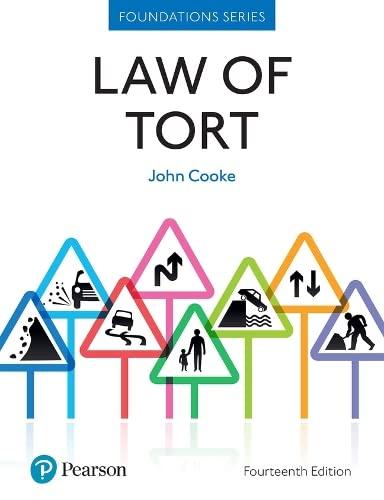Question
Sarah, a salon owner, operates a trendy salon in London, Ontario. She advertises for a stylist. Nia calls in response to the ad and seeks
Sarah, a salon owner, operates a trendy salon in London, Ontario. She advertises for a stylist. Nia calls in response to the ad and seeks an interview. At no time does Nia mention that she covers her head for religious reasons. Nia attends the interview, which lasts only ten minutes. During the interview, Nia makes it clear that she will not remove her headscarf while at work and Sarah tells her that in that case, she cannot hire her. Sarah has a policy requiring all stylists to show their hair. She doesn't allow baseball caps or other hats to be worn by staff because, in her view, a stylist's hair is her "calling card" and that of the salon's.
As a result of Sarah's reaction to her headscarf during the interview, and the ultimate decision not to offer her the job, Nia files a human rights complaint alleging discrimination. (She's been turned down by numerous salons and she's tired of it.) Sarah says she's a small salon and the costs of responding to this complaint will put her into financial ruin.
Assume that you are a member of the human rights tribunal deciding this case. On the basis of Ontario's Human Rights Code, what would your decision be? Support your conclusions.
Step by Step Solution
There are 3 Steps involved in it
Step: 1

Get Instant Access to Expert-Tailored Solutions
See step-by-step solutions with expert insights and AI powered tools for academic success
Step: 2

Step: 3

Ace Your Homework with AI
Get the answers you need in no time with our AI-driven, step-by-step assistance
Get Started


